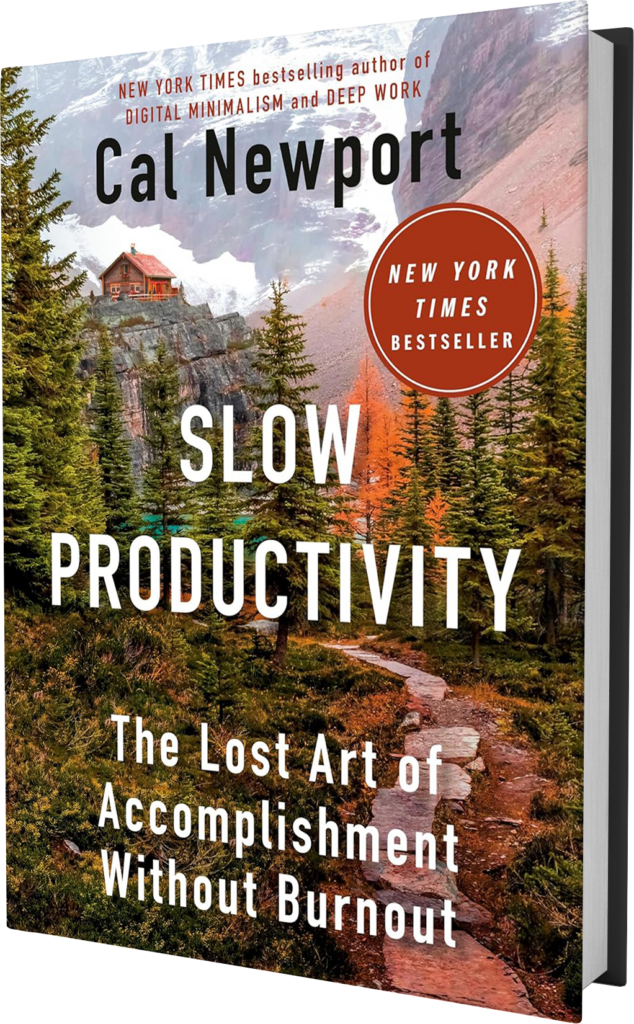Slow Productivity: The Lost Art of Accomplishment Without Burnout (Cal Newport)
What Resonated with Me
I am drawn to the concept of slow productivity, which emphasises doing fewer things, working at a natural pace, and obsessing over quality to achieve meaningful accomplishments without burnout. The idea of limiting workload and focusing on high-value tasks aligns with my belief in sustainable productivity. I also value the historical examples and practical strategies provided to implement slow productivity in modern work environments, as well as the positive impact on mental health.
Summary
“Slow Productivity: The Lost Art of Accomplishment Without Burnout” by Cal Newport explores the concept of slow productivity as a sustainable and meaningful approach to work. Newport emphasizes doing fewer things, working at a natural pace, and obsessing over quality to combat the exhaustion caused by pseudo-productivity. The book offers a philosophy for organizing knowledge work efforts that prioritize a humane pace, focusing on quality over performative activity.
3 Key Takeaways
Newport introduces slow productivity as an alternative to the fast-paced, overwhelming approach to work. By doing fewer things, working at a natural pace, and focusing on quality, individuals can achieve more meaningful and sustainable professional accomplishments.
One of the key principles of slow productivity is to limit the number of tasks, projects, and missions one undertakes. By setting strict boundaries and being selective about commitments, individuals can maintain clarity and control over their schedules, reducing stress and increasing effectiveness.
Newport argues for a more natural, varied pace of work that aligns with one’s intrinsic capabilities and rhythms. This approach not only enhances well-being but also leads to better long-term results, as it allows for deeper focus and creativity.
Interesting Quotes
Other Notes
- Principles of Slow Productivity: Newport outlines three principles of slow productivity: do fewer things, work at a natural pace, and obsess over quality. These principles are designed to help individuals achieve meaningful accomplishments without burnout.
- Historical Examples: The book draws on historical examples, such as Jane Austen and Galileo, to illustrate the benefits of slow productivity. These figures achieved great success by working at a natural, sustainable pace.
- Practical Strategies: Newport provides practical strategies for implementing slow productivity, including setting limits on the number of projects, using autopilot schedules for recurring tasks, and embracing pull-based workflows to avoid overload.
- Impact on Mental Health: Slow productivity not only enhances work quality but also positively impacts mental health. By reducing the constant pressure to perform, individuals can experience greater well-being and satisfaction in their professional lives.
- Adapting to Modern Work: Newport acknowledges the challenges of implementing slow productivity in modern work environments but offers solutions for creating a more balanced and humane approach to work.
Every week, I’ll be sharing practical tips and invaluable knowledge to guide you on your path to financial independence.

